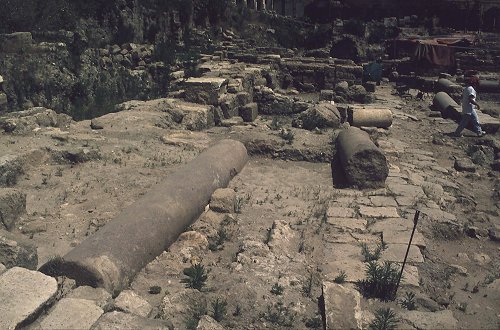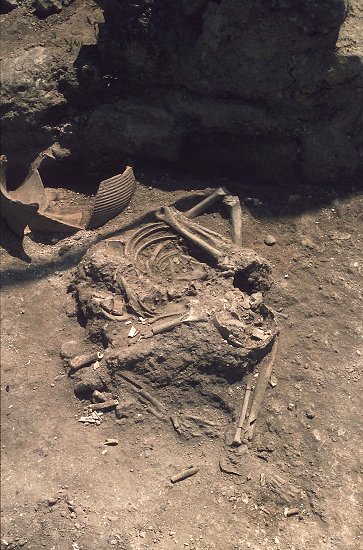

The early Byzantine level. This shot looks down the line of the earlier Roman high street, once lined by standing pillars of granite (imported from Egypt ?). The early Byzantine reconstruction shows how the pillars are used to form the base of new irregular walls to buildings. This is a puzzle - round-section pilliars are terrible building blocks on their sides. We can deduce that the old Roman buildings were seriously damaged, the pillars toppled. Presumably moving the pillars out of the way for rebuilding was not an option - so they had to be used, with a small amount or realignment to start off new walls. So the 551AD earthquake must have left little of the old high-street standing.

![]() During excavations this body was found beneath a collapsed
ceiling in a Roman house. The level is the same as the high street - we deduce
that the ceiling collapsed with little warning - presumably because of the 551AD
earthquake. Later redevelopment entombed the collapsed house and its crushed
occupant.
During excavations this body was found beneath a collapsed
ceiling in a Roman house. The level is the same as the high street - we deduce
that the ceiling collapsed with little warning - presumably because of the 551AD
earthquake. Later redevelopment entombed the collapsed house and its crushed
occupant.
| Dead Sea Transform front page | Map of the Dead Sea Transform |